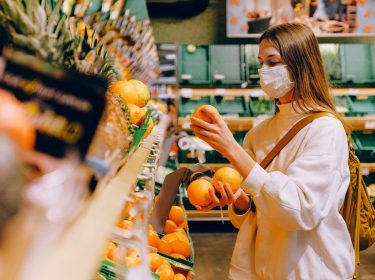
Diet drinks no healthier than sugary versions, scientists warn
Diet drinks make no difference to weight gain and should not be seen as healthier than their full-sugar counterparts, according to researchers. In fact, sugary drinks, in any capacity, can cause inflammation within the muscle and joints, which is another negative against them. If people have been drinking these sugary drinks for ages, then they may feel sore a lot of the time. They can change this by adopting a healthier lifestyle and looking into using anti inflammatory vitamins to counteract these effects, but it only works if they want to change their lifestyle, and this doesn’t mean switching to diet/sugar-free drinks.
The negative health effects of sugary drinks, both regular and diet, are becoming increasingly clear. Frequent consumption of sugary beverages can lead to inflammation, obesity, diabetes, and other problems. Switching to diet drinks may seem like a healthier option, but as the second passage points out, recent research indicates diet sodas don’t offer the expected benefits for weight loss or health.
In fact, the intense sweetness of artificial sweeteners in diet drinks may perpetuate cravings and dependence on sweet flavors. And people who think they’re making a healthy choice by drinking diet soda may unconsciously overconsume calories from other sources. So in the end, diet drinks appear no better than regular sodas when it comes to weight management or overall health.
Artificially sweetened beverages promote an unhealthy addiction to sweet tastes and provide no benefits compared to their full-sugar counterparts. We’re better off sticking to water and other unsweetened beverages. After years of drinking sweet sodas, it may take time to adjust our palates. But doing so can help reduce inflammation, cravings, and other negative health effects. These beverages also have a negative effect on oral health, and may cause staining or plaque buildup in teeth. You might need to undergo a teeth cleaning canton (or one wherever you live) to battle the effects of this.
If you’re trying to cut back on sugar and slim down, you may think switching to diet soda is the way to go. But new research is revealing that diet soft drinks may not be any healthier than their full-sugar counterparts.
The habitual consumption of sugary drinks has been linked to an increased risk of obesity, type 2 diabetes, heart disease, fatty liver disease. It also increases the chances of tooth decay, which can destroy the enamel and require dental work like fillings or even dental implants to replace missing teeth. While diet drinks eliminate calories, the intense sweetness may still promote sweet cravings and dependence.
What this means is that regular consumption of sugary drinks may not only pose a threat to your cardiovascular health, but excessive sugar intake could also lead to tooth decay and other health complications. Moreover, individuals who habitually consume sugary drinks may be at risk of developing Temporomandibular Joint (TMJ) disorders. The excessive consumption of sugar can contribute to weight gain, potentially straining the jaw joint and surrounding muscles, thereby increasing the likelihood of TMJ-related issues over time. In such cases, individuals affected by tmj in cave creek, az (or elsewhere), may need to seek the expertise of specialists to improve their jaw health.
I recently came across some concerning info about how diet drinks affect our bodies and weight loss efforts. According to a study presented at a major obesity conference, diet beverages don’t make a difference in weight gain compared to sugary drinks. The researchers analyzed data from thousands of people over decades of studies. Their finding? Folks who drank a diet drink daily weighed the same as people who drank regular soda.
People who switch to sugar-free fizzy drinks may eat more because they feel that they are being healthy and still crave sweet foods, academics suggested. They criticised drinks companies for marketing sugar-free alternatives as healthy and encouraged people to stick to water. Experts from other universities said, however, that it was wrong to dismiss previous trials showing a clear improvement in weight from avoiding sugary drinks.
More than half of soft drinks sold are now low-calorie and their benefits are crucial to the success of a sugary drinks tax to be introduced next year.
The levy is specifically designed to press companies to take sugar out of drinks. A study last month concluded that almost 150,000 people a year could be prevented from becoming obese if companies cut sugar to dodge the tax. Christopher Millett, of Imperial College London, senior author of the commentary, said: “A common perception, which may be influenced by industry marketing, is that because ‘diet’ drinks have no sugar they must be healthier and aid weight loss when used as a substitute for full-sugar versions. However, we found no solid evidence to support this.”
At least five randomised trials have found a benefit from switching from sugary to sugar-free drinks, but Professor Millett said that the effects were small and other research had not found any effect. In the journal PLoS Medicine his team speculates that people change their eating habits to compensate. For example, artificial sweeteners could stimulate sweet-taste receptors, encouraging people to crave sugary foods.
Maria Carolina Borges, first author of the study from the Federal University of Pelotas in Brazil, said: “The lack of solid evidence on the health effects of artificially sweetened beverages and the potential influence of bias from industry-funded studies should be taken seriously when discussing whether [they] are adequate alternatives to sugar-sweetened beverages.”
Susan Jebb, of the University of Oxford, said that artificially sweetened drinks were a “step in the right direction” for people used to full-sugar varieties and criticised the Imperial College team for dismissing evidence that did not suit them.
Naveed Sattar, of the University of Glasgow, said: “As a practising physician, I would much rather my patients were able to take diet drinks than sugary drinks, but of course best of all would be water.”
Tom Sanders, of King’s College London, said that the new claims would only confuse people. “This article is an opinion piece rather than a systematic review of the evidence,” he said. “It refutes a previously published systematic review that showed modest weight loss when full sugar drinks were replaced with artificially sweetened beverages because that review was industry funded, not on the basis of the scientific methods used.”
Gavin Partington, of the British Soft Drinks Association, added: “At a time when we are trying to encourage people to reduce their overall calorie intake it is extremely unhelpful that products which contain no sugar, let alone calories, are demonised without evidence.”
In October 2015, The Times revealed that Coca-Cola had poured millions of pounds into scientific research and healthy eating initiatives designed to present its drinks in a healthy light.
In the same month Sarah Wollaston, head of the parliamentary health committee, warned that the power of Coca-Cola and other “vested interests” to influence Britain’s debate on obesity was of great concern.




